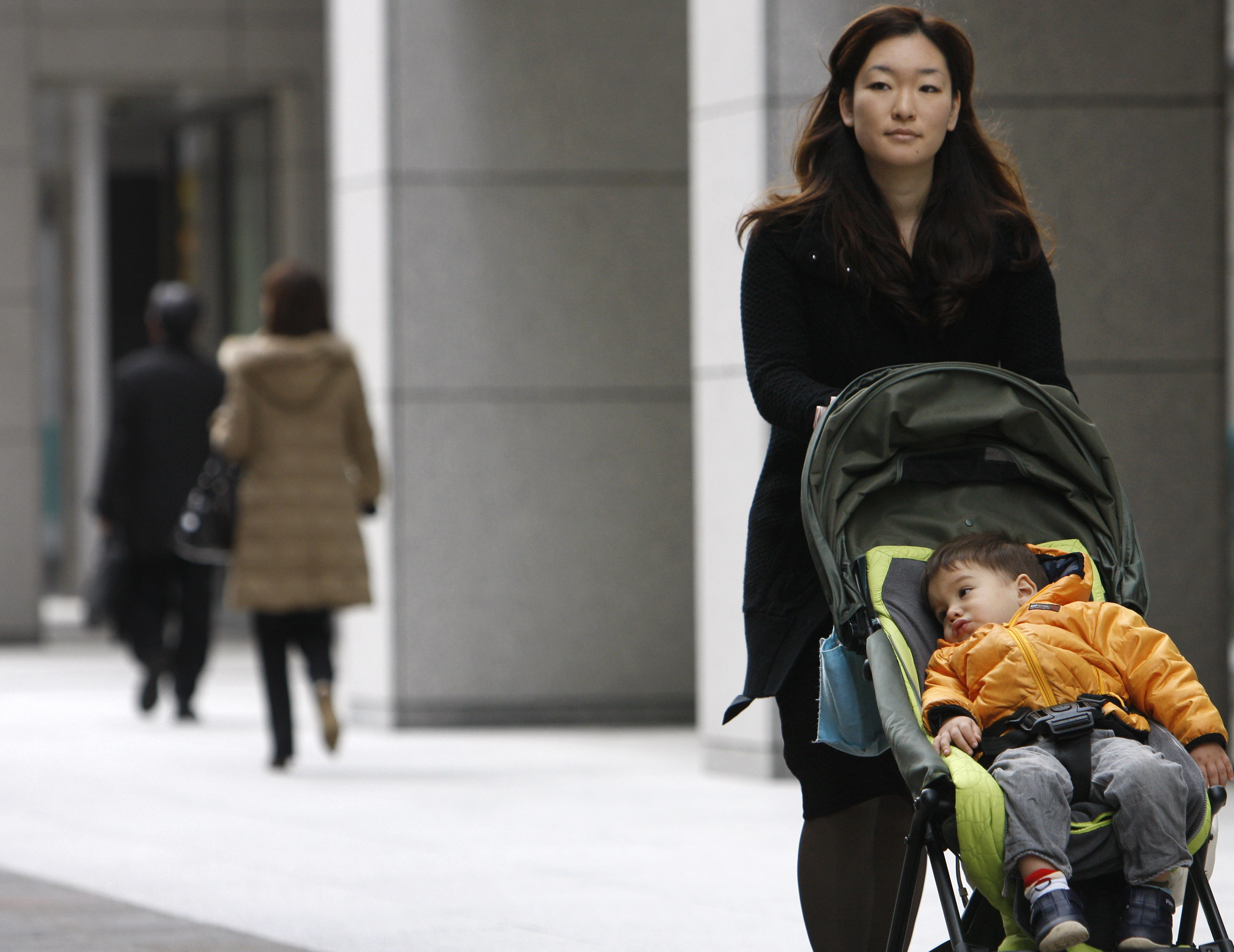Hiroko Yano, who's worked 20 years at the same company, was recently told she could become a manager. The mother of three, who puts in an average of two hours of overtime a day, rejected the idea, saying she doesn't want to be stuck in the office until midnight like the other managers.
"I'd like to have a job where I don't have to do overtime," said Yano, 45, a team leader at an information technology solutions company, who asked that it not be named. "Sometimes I think it would be better to give up working altogether and become a housewife, so that I can see my children when they come back from school."
Japan's culture of working long hours makes it difficult for women to take senior roles and still leave on time, threatening to thwart Prime Minister Shinzo Abe's pledge to fill 30 percent of management positions with females by 2020. Unless more women and elderly people are encouraged to work, the nation's labor force may shrink to 38 million people in 2060 from 66 million now, according to Cabinet Office calculations.

















With your current subscription plan you can comment on stories. However, before writing your first comment, please create a display name in the Profile section of your subscriber account page.